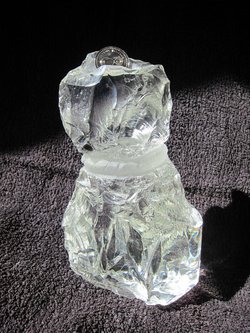Your Money Has No Power!
Friday, 14 December 2012By Michael Mainelli
In autumn 2011, one of the most fascinating days I had working on the Capacity, Trade And Credit: Emerging Architectures For Commerce And Money report, was interviewing a Sardinian anthropologist in Dublin. Giovanni Concu (“Nanni”) struck me as a lovely and gentle man, who was still a bit disoriented from three clearly special years with the Yolngu people of Arnhem Land, the most northernmost (sic) region of the Northern Territory of Australia. The Yolngu are considered the inventors of the Mandapul, or Yidaki, which we call “didgeridoo”. They have the interesting kinship structures any anthropologist needs, and throw in some excellent art, music, and trading customs to boot. One of their musical groups, Yothu Yindi, may be known to some readers as they achieved fame and fortune in the west during the 1980s and 1990s. A copy of their Tribal Voice album sits on my shelf.
Nanni and I met in Dublin for academic accreditation business, validating the curriculum for a new course in environmental finance. During the course of our business I found out that he had spent three years paid for by the Australian government to investigate aboriginal concepts of money. I had to interview him for our study. Fortunately, it was Nanni’s first time in Dublin and he needed his first Guinness. As a former Dublin resident, I quickly took him to The Gravediggers (the pub "John Kavanagh" beside Glasnevin Cemetery, as mentioned in Ulysses). Using advanced Irish anthropological techniques, I managed to get nearly six hours of wonderful stories from him.
Nanni’s tales ranged from how you actually approach an aboriginal tribe to live with them (just imagine someone saying to you, “hey, nice house, would love to live here and study you for a few years?"); the implications of almost completely communal property; the complexities of rings of circular obligations; how he got his tribal name “Larpan”, and why; what it means to have hundreds of ‘brothers’ and ‘sisters’ as well as six ‘wives’, all a bit older than you; ‘maps’ as ‘art’ and how village elders authorise ‘art’; why you should torch a car if it doesn’t make you free; the strong taboos on some animals; in a culture where stories are the important currency, what is the first story a foreigner tells?; the occasionally immense boredom of living in the wild and hearing the same story time and again; and, of course, the ever important anthropological subject, relations between the sexes. And he was clearly homesick, for Arnhem Land.

Nanni’s first story among the Yolngu turned out to be how he had helped reach an amicable agreement between a developer and his community in Sardinia. When a company came with a project for the Yolngu, Nanni was put forward as the brother who would represent them. This must have been a strange situation for him, but it was the story he told about one of his sisters that I most remembered. Yolngu have a “dilly bag” for important tokens of knowledge. This has real value to them. His sister came before a consultation meeting peering through some semi-transparent, plastic Australian note, saying: “I can see through your money; it has no power.” Then she held up her dilly bag, saying: “You can’t see through this; this has real power!”
When I was in Austria in 2012 carving some Russian space glass with a chisel (as one does – Geisler-Moroder), I was stuck for an idea till I remembered Nanni’s tale. With immense encouragement and help from my patient and inspiring teacher, Robert Simon, I decided to try and turn some glass from the Russian space programme into a ‘Geldsack’ to illustrate the story. Leaving aside the terror of being near me at that time, with knife-sharp discs of glass whirring round the workshop and embedding themselves in the wooden walls as if they were Ninja throwing knives, you can judge the result below. I couldn’t resist placing one of Long Finance’s Eternal Coins in the mouth of the money bag. But in these times of financial crises, which I consider to be monetary crises, what’s our story – “we can see through our money, so it has no power” or “we can’t see through our money, so we have no power”?